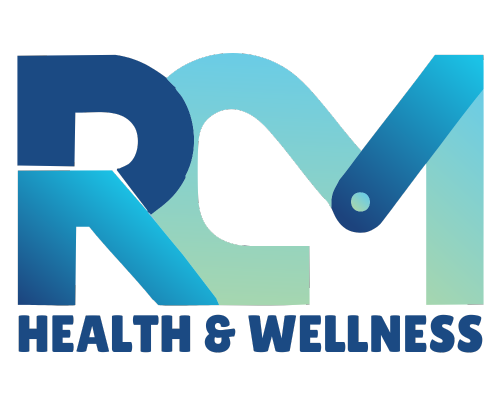Disclaimer: The information in this article is for educational purposes only and is not intended as medical advice. Always consult with a healthcare professional before starting any new supplement regimen, especially if you have underlying health conditions.
Creatine is one of the most researched and effective supplements for improving athletic performance, muscle growth, and overall health. Used by athletes, bodybuilders, and fitness enthusiasts alike, creatine has gained recognition for its ability to enhance strength, power, and recovery. But what does the science actually say? In this article, we’ll break down the benefits of creatine, recommended dosages, and whether taking it with protein enhances its effects.
What Is Creatine?
Creatine is a naturally occurring compound found in muscle cells. It is primarily stored as phosphocreatine, which helps regenerate adenosine triphosphate (ATP) – the body’s primary energy source for high-intensity activities like sprinting, weightlifting, and jumping. While our bodies produce creatine naturally, supplementation can significantly increase stores, leading to enhanced performance.
Science-Backed Benefits of Creatine
- Increases Strength and Power
Numerous studies have shown that creatine supplementation improves strength and power output. A meta-analysis published in the Journal of the International Society of Sports Nutrition (JISSN) found that creatine supplementation led to an 8% increase in strength and a 14% increase in weightlifting performance compared to a placebo.
- Enhances Muscle Growth
Creatine promotes muscle growth by increasing water retention in muscle cells, which triggers protein synthesis and cell volumization. Additionally, a study in Medicine & Science in Sports & Exercise showed that participants who took creatine during resistance training experienced significantly greater muscle mass gains than those who did not.
- Speeds Up Recovery
Research suggests creatine can reduce muscle damage and inflammation following intense workouts, leading to faster recovery. A study published in Amino Acids found that athletes taking creatine experienced less muscle soreness and recovered faster between training sessions.
- Improves High-Intensity Performance
Creatine helps replenish ATP stores more rapidly, allowing for greater endurance in short, intense bursts of activity. This makes it beneficial for athletes involved in sprinting, weightlifting, and high-intensity interval training (HIIT).
- Supports Brain Health
Creatine is not just for muscles – it also plays a crucial role in brain function. Research in Neuropsychology Review suggests that creatine supplementation may enhance cognitive performance, particularly in tasks requiring short-term memory and quick thinking. Additionally, creatine has shown promise in conditions such as Parkinson’s disease and depression.
Does Taking Creatine with Protein Improve Its Effects?
While protein is essential for muscle repair and growth, research on whether taking creatine with protein enhances its effectiveness is mixed. A study in the Journal of Strength and Conditioning Research compared creatine supplementation with and without protein and found no significant difference in muscle strength or size gains. However, consuming creatine alongside protein and carbohydrates can enhance muscle uptake due to the insulin spike from food, which facilitates better absorption.
How Much Creatine Should You Take?
The recommended dosage of creatine varies based on individual goals:
Phase 1, Loading (Optional): 20 grams per day (divided into 4 doses) for 5-7 days to rapidly saturate muscles.
Phase 2, Maintenance: 3-5 grams per day to maintain creatine stores.
Skipping the loading phase and taking 3-5 grams daily is equally effective over time, though muscle saturation takes longer.
Is Creatine Safe?
Creatine is one of the safest and most studied supplements available. Decades of research have found no harmful effects on kidney or liver function in healthy individuals. However, those with pre-existing kidney disease should consult a doctor before use.
Conclusion
Creatine is a scientifically proven supplement that enhances strength, muscle growth, recovery, and even brain function. While taking it with protein may not significantly boost its effectiveness, consuming it alongside food can aid absorption. Whether you’re an athlete, bodybuilder, or just looking to improve overall performance, creatine is a safe and effective supplement to include in your regimen.
Disclaimer: The information in this article is for educational purposes only and is not intended as medical advice. Always consult with a healthcare professional before starting any new supplement regimen, especially if you have underlying health conditions.
Bibliography
- Kreider, R. B., et al. (2017). International Society of Sports Nutrition position stand: safety and efficacy of creatine supplementation in exercise, sport, and medicine. Journal of the International Society of Sports Nutrition.
- Volek, J. S., et al. (1999). Creatine supplementation enhances muscular performance during high-intensity resistance exercise. Medicine & Science in Sports & Exercise.
- Rawson, E. S., et al. (2011). Does resistance training combined with protein and creatine supplementation improve body composition in older adults? Journal of Strength and Conditioning Research.
- Dolan, E., et al. (2018). Creatine supplementation and exercise: considerations for cognitive performance in sports. Neuropsychology Review.
- Cooke, M. B., et al. (2009). Effects of acute and chronic creatine supplementation on exercise performance and recovery. Amino Acids.
